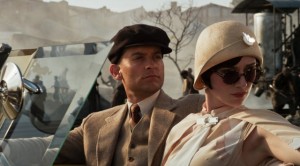NB: this entire post deals with major spoilers for the movie Frozen.
A recent Slate article makes the case that the big twist towards the end of Frozen (in which the dashing prince, Hans, is revealed as a self-serving scoundrel) teaches girls valuable lessons about the dangers of whirlwind romances. The author objects to the idea that young children need their heroes and villains clearly delineated: “One of the purposes of children’s fiction . . . is to help children get past those base urges and learn to enjoy more nuanced stories that have real and important insights into the human condition, so they don’t become those lazy, unsophisticated adults.” By turning stereotypes on their heads—the prince is the villain—Frozen teaches important life lessons that previous Disney princess movies have unhelpfully sugarcoated.
True enough, but the problem is that the twist in Frozen isn’t nuanced or sophisticated at all. It’s a cheap trick. The writers play upon audience expectations of Disney princes, then suddenly pull back the veil and shout “See what we did there? He’s a prince but he’s evil!” *Gasp!* The writers don’t explore any of the interesting quandaries and moral dilemmas this twist produces. After the big reveal, Hans is in every way a stereotypical Disney villain. His earlier mannerisms seem suddenly at a disconnect, and this makes the twist feel particularly clunky. Sure, the kindness and conscientiousness he exhibited earlier were all part of his act; but wouldn’t it be more nuanced to have these elements of his personality show through even afterwards? The fact that they don’t renders him one-dimensional in retrospect: he’s a villain, therefore he wasn’t capable of real kindness towards the citizens of Arendelle—his concern for their safety was just part of his evil plan. It’s an easy, lazy excuse. By the end of the movie Hans is a wild-eyed, sword-wielding maniac, every bit as uncomplicated as a villain from one of those “old melodramas.” And his storyline is tied up just as neatly and cleanly: he’s behind bars for his crimes and everything’s right with the world.
All of this doesn’t invalidate the lessons Frozen teaches, of course. But, for all the shock of its twist, Frozen still deals in an uncomplicated binary: heroes are heroes, villains are villains. Hans has no capacity for real courage or kindness because, at his core, he’s a villain. It’s still a regrettably oversimplified way of looking at the world: the good guys win, the bad guys lose, and as always, Disney prevails.
 That’s one valuable aspect of the novel, to be sure, but—at the risk of arguing authorial intent—it’s not the point. The Great Gatsby endures because it’s a window into our lives, particularly ours as Americans—the transience and meaninglessness of material culture, of misguided ambition, of faulty idealism. It’s not specific to one time or place. I don’t think our understanding of The Great Gatsby needs to be confined within the bounds of 1920s New York. Certainly the Twenties gave F. Scott Fitzgerald a ready canvas to work from, but the story of Gatsby’s tragic love for Daisy is just as relevant today as then, just as searing.
That’s one valuable aspect of the novel, to be sure, but—at the risk of arguing authorial intent—it’s not the point. The Great Gatsby endures because it’s a window into our lives, particularly ours as Americans—the transience and meaninglessness of material culture, of misguided ambition, of faulty idealism. It’s not specific to one time or place. I don’t think our understanding of The Great Gatsby needs to be confined within the bounds of 1920s New York. Certainly the Twenties gave F. Scott Fitzgerald a ready canvas to work from, but the story of Gatsby’s tragic love for Daisy is just as relevant today as then, just as searing.